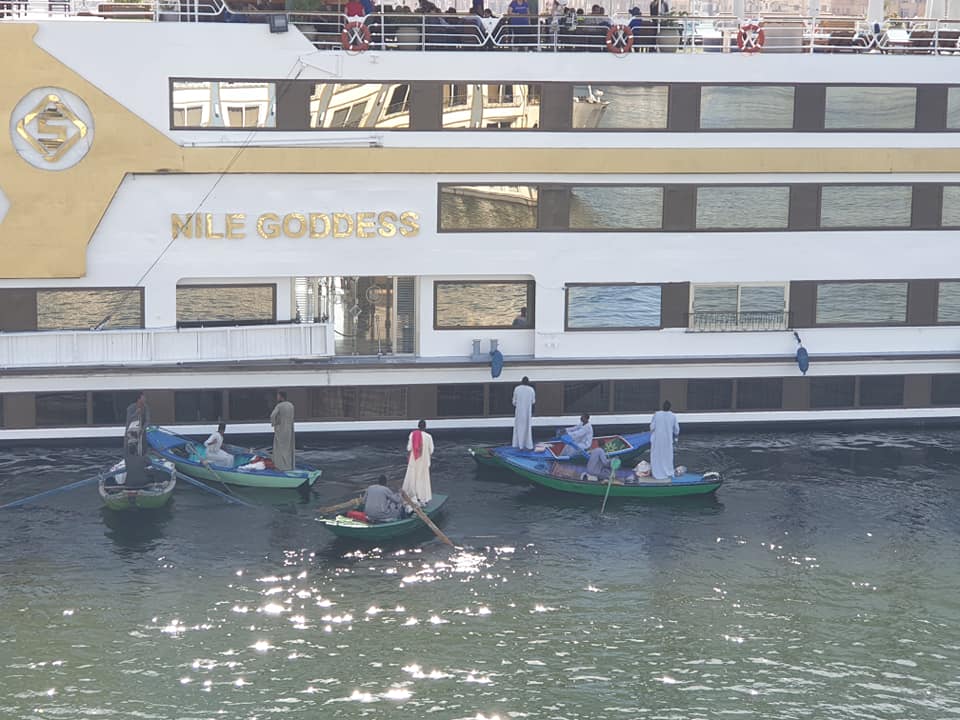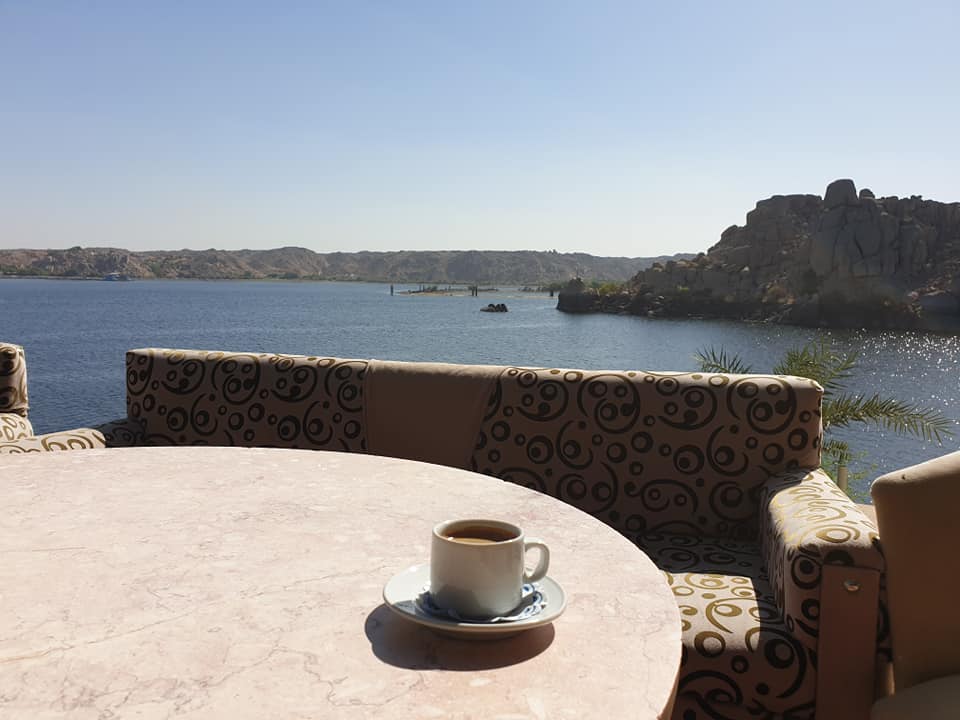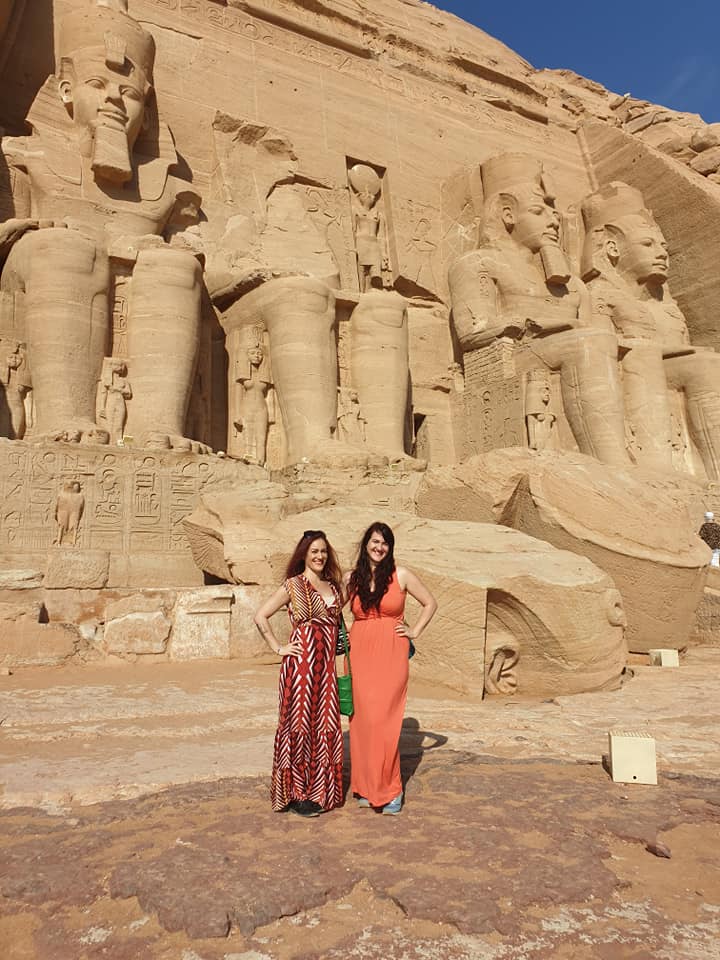
The next day we flew early in the morning to Aswan, the most southern city in Egypt. Traveling in Egypt is pretty tiring since there are so many security checkpoints (at least three). Since we couldn’t check into the hotel early, we stopped at Philae Essence Palace where you can purchase essential oil. Many fragrance companies get their essences from Egypt, and there were oils that replicated many popular perfumes. I couldn’t resist getting a couple, along with lotion made with camel’s milk that is supposed to help your skin look younger (we’ll see). It was a fun way to kill some time before we were able to go to our hotel in Aswan. I was happy to spend the rest of the afternoon at the pool.
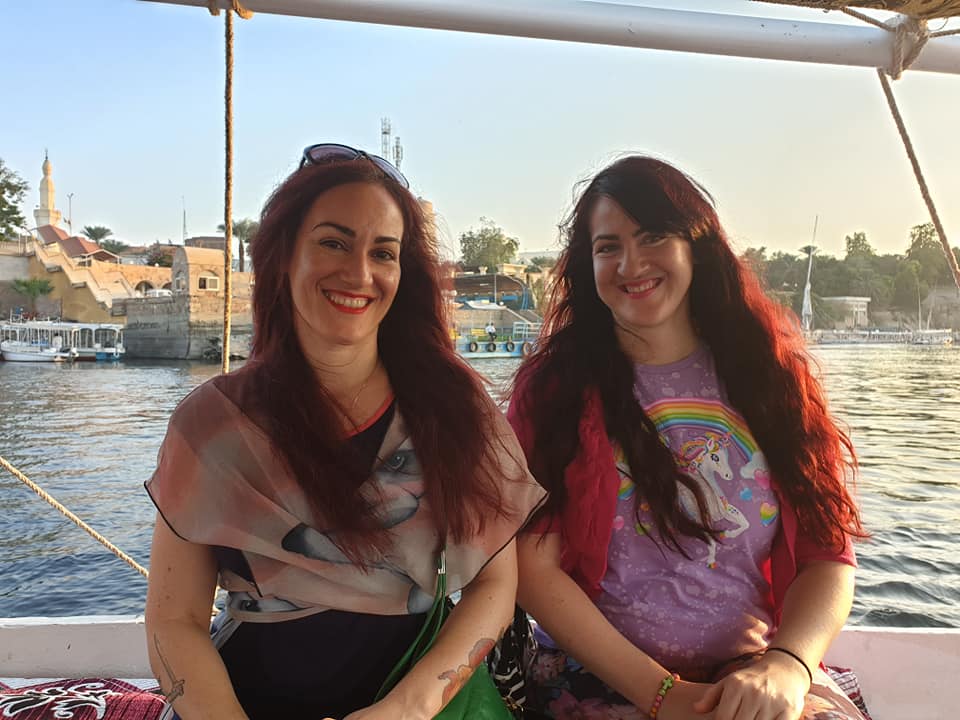
Dinner was with a local Nubian family on Elephant Island (where a Nubian village is). We had dinner with Mohammed, which was prepared by his wife. We took a felucca to get to the village. It was so relaxing since the sun was setting, and there were some fantastic views (we saw Aga Khan Mausoleum and Kitchener Island from a distance). The food was delicious! Egyptian food uses eggplant for many dishes, and stews are made with a tomato base. I was a big fan of the eggplant stew with rice. After the lovely dinner we took a faster boat back to the mainland, and after a long day, it was great to get a good night’s sleep.
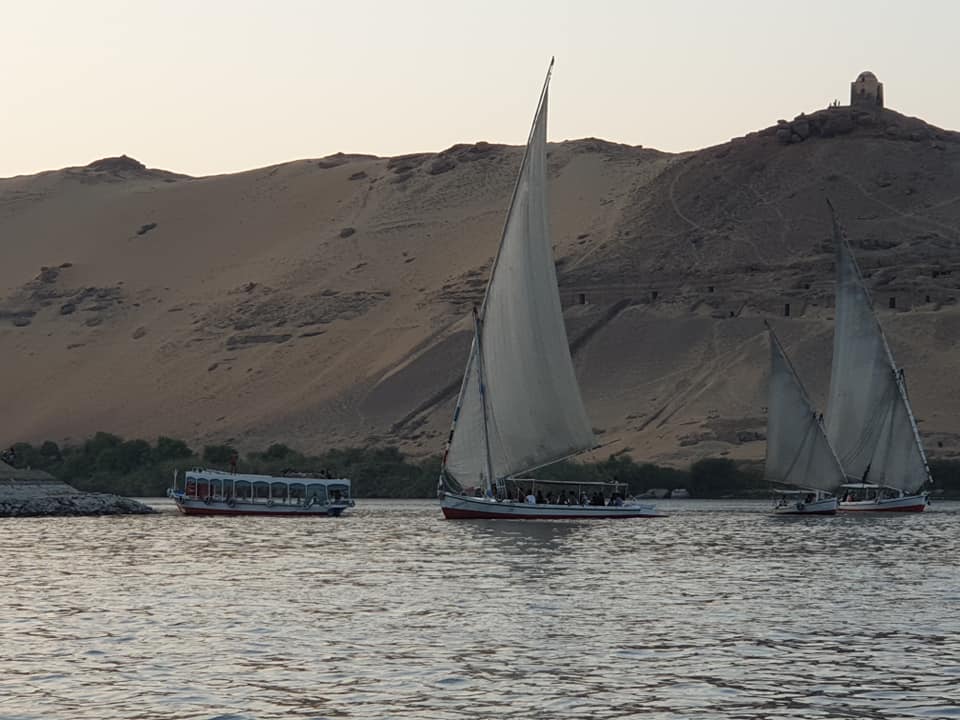
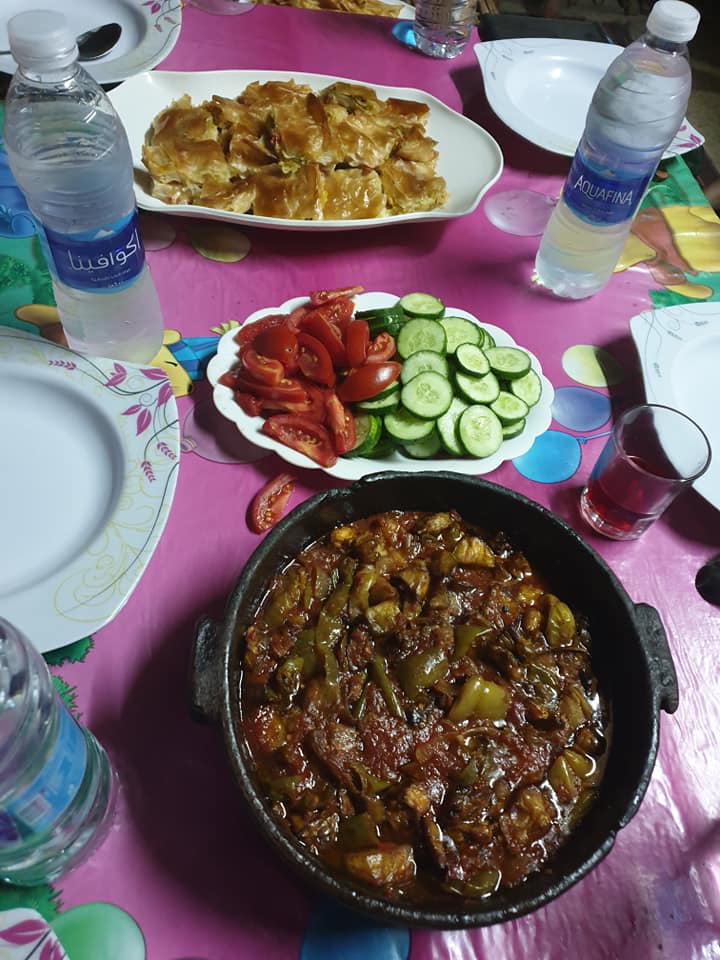
The next day we had to be up at 4am in order to journey to the middle of the desert to visit Abu Simbel, the famous set of temples built by Ramses II; the smaller one was dedicated to his favorite queen, Nefertari. The site is near the Sudanese border of Egypt. The temples were carved out of the mountain in the 13th century BC to commemorate Egypt’s victory at the Battle of Kardesh. The statues of Ramses represent him in the different stages of his life. The Great Temple is also dedicated to the gods Amun, Ra-Horakhty, and Ptah. The site had to be completely moved and reconstructed in 1968 due to the building of the Aswan High Dam. Abu Simbel is absolutely amazing; it’s something you just have to experience to understand.
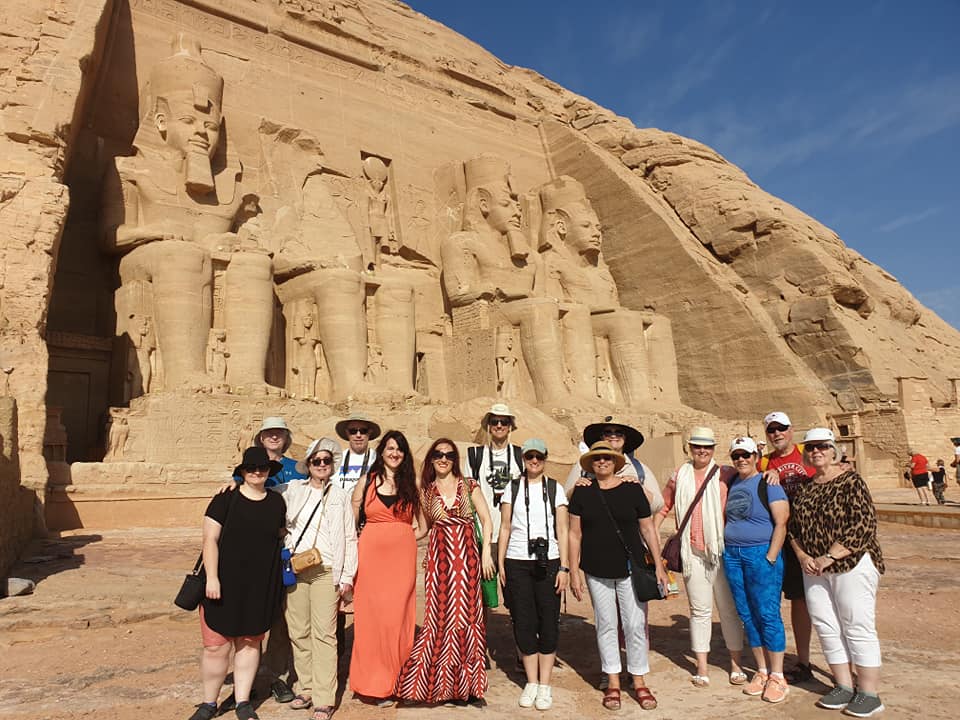
The inside of the temple is incredible as well. The colossal statutes of Ramses in the interior link him to the god Osiris. There are bas reliefs on the walls that depict famous military conquests, while other parts depict Ramses connection to the gods, and as well as to Egyptian deities. The temple is positioned on an axis that on Oct and Feb 22 (king’s birthday and coronation days), the rays of the sun illuminate the sculptures on the back wall, so the site is crazy on these days (visit at your own peril).
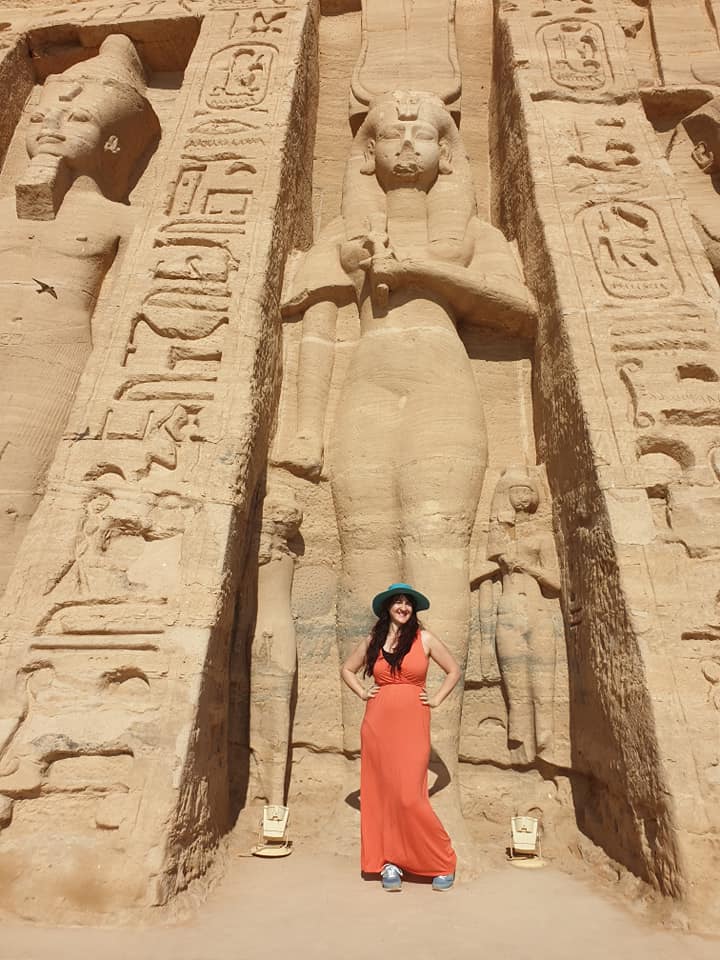
Nefertari’s temple is smaller and dedicated to the goddess Hathor. The ladies in our group dug Hathor since she is sometimes represented as a cow or has the ears of a cow (we all have those days when we feel like a cow). She is a primeval deity that other gods derived from, and is mainly associated with women (and represents many other different things). The statues of Ramses and Neftari are the same size, which is rare in Egyptian art (the wives are usually represented as much smaller than the pharaoh). Like most sites in Egypt, there is a market where you can haggle and shop, but since we stayed until the last minute in the temples, we had to walk super-fast in order to meet our group on time. You have to leave the temples early since the road there gets closed, which is why the tours get there so early.
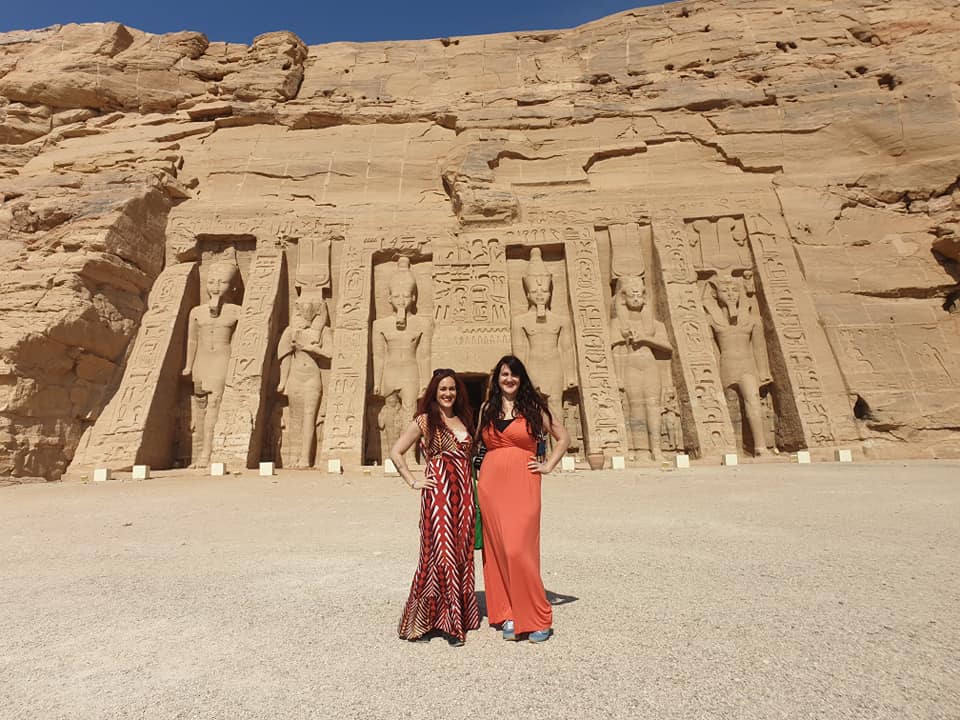
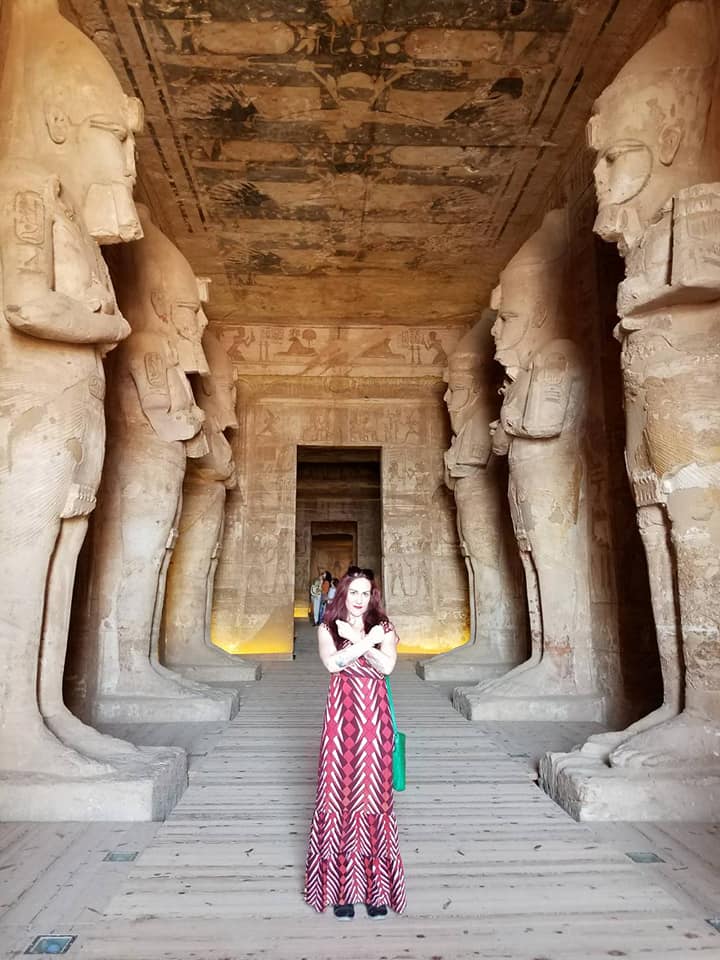
After getting back to Aswan, we checked into our Nile cruise ship, the Princess Sarah, where we would be sailing for the next three days. I had low expectations (took a day cruise in Vietnam that was rough), but was pleasantly surprised that the boat was nice. On the rooftop there was a bar and pool, with a covered seating area where you could talk and just enjoy the view. We docked in Aswan, and would not leave until the next day.
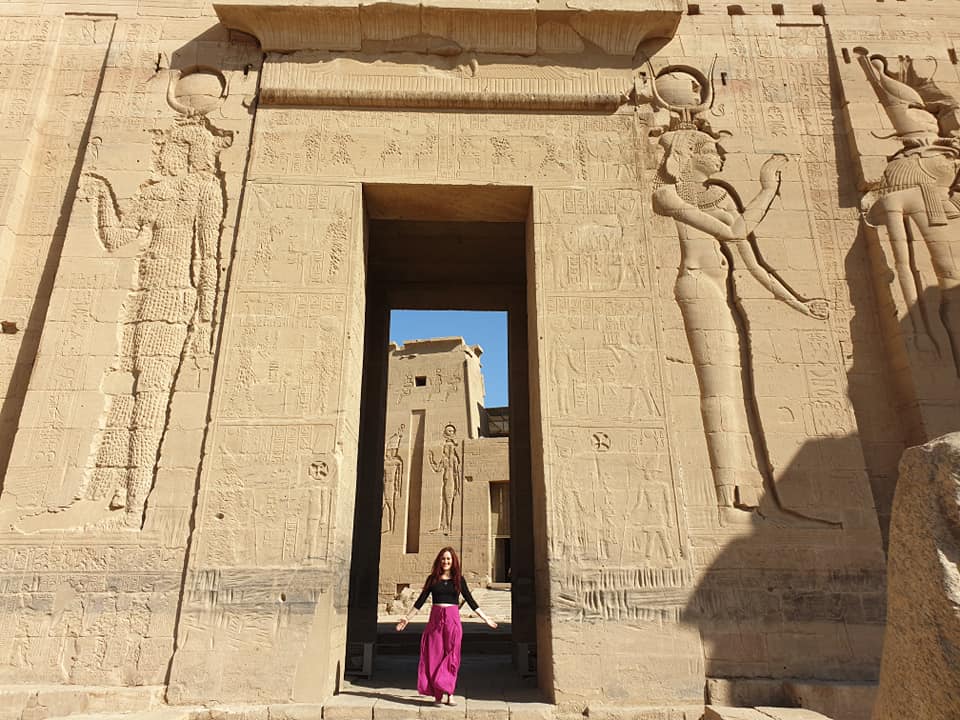
The next morning, we took an optional excursion to the Temple of Philae on an island of Lake Nasser. The temple was another place that had to be relocated due to flooding before the Aswan High Dam was completed. Philae was believed to be a sacred place, and the temple was dedicated to Isis, the Egyptian goddess of love and beauty. The temple was thought to have been built around 380 to 362 BC. The story of Osiris is told on the temple walls. Early Christians scratched out many of the ancient gods, and you can see Coptic graffiti defacing the temple. Inside you can go into the inner sanctum of the temple, where the holiest of holies would be. Outside there is a smaller temple dedicated to Hathor. The grounds are beautiful, and you have to make time to walk around the temple complex. Again, pictures do not do the place justice. After walking in and outside the temple, we went to the café to have a Turkish coffee and just enjoy the beautiful view.
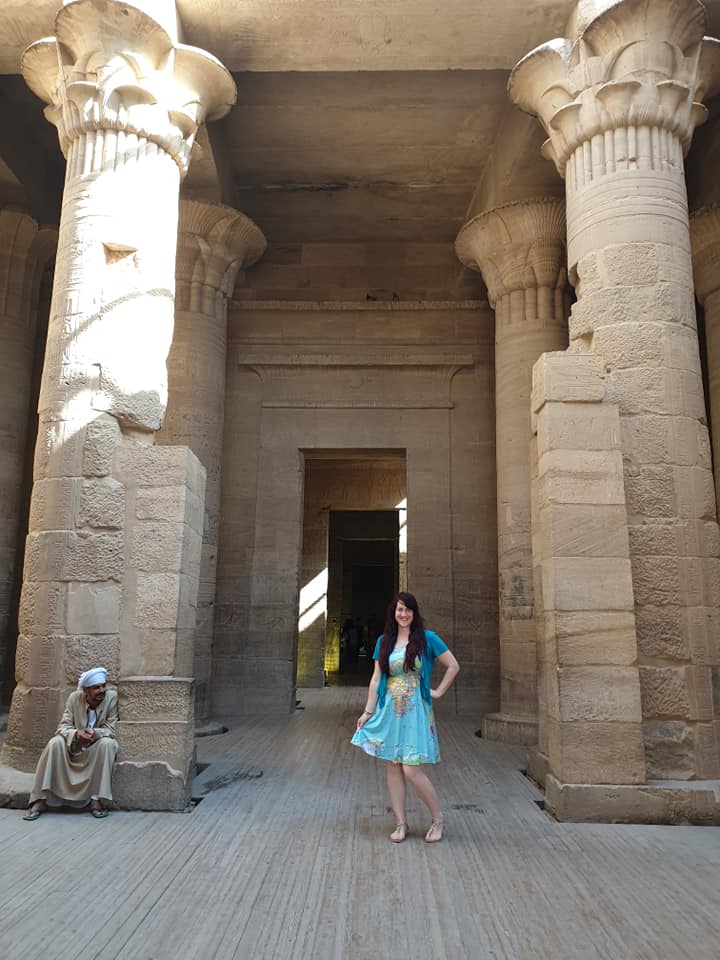
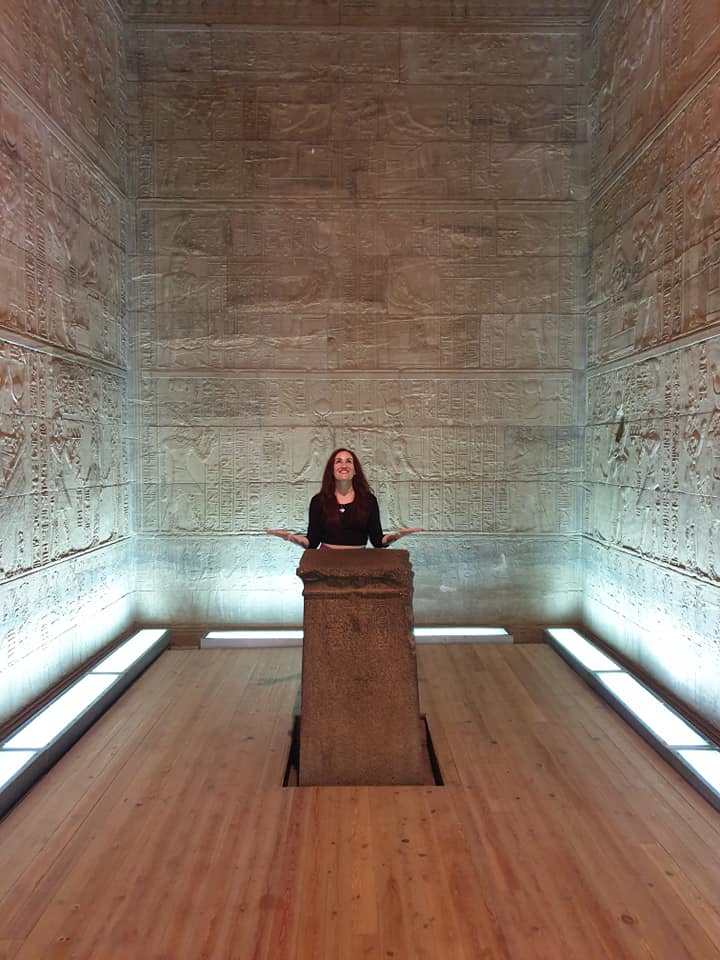
We went back to our boat and were off on our cruise. That evening we stopped at Kom Ombo Temple. The temple is a double temple since it is dedicated to two gods; one side to the crocodile god Sobek, one of the creator gods of the world (and the god of fertility). The other side is dedicated to the falcon god Horus. The temple is symmetrical with two sets of halls, courts, and sanctuaries. The temples were built during the Ptolemaic Kingdom, though the site had already housed a temple built during the New Kingdom. There is a Crocodile Museum next door where you can see some of the mummified crocodiles found on the site.
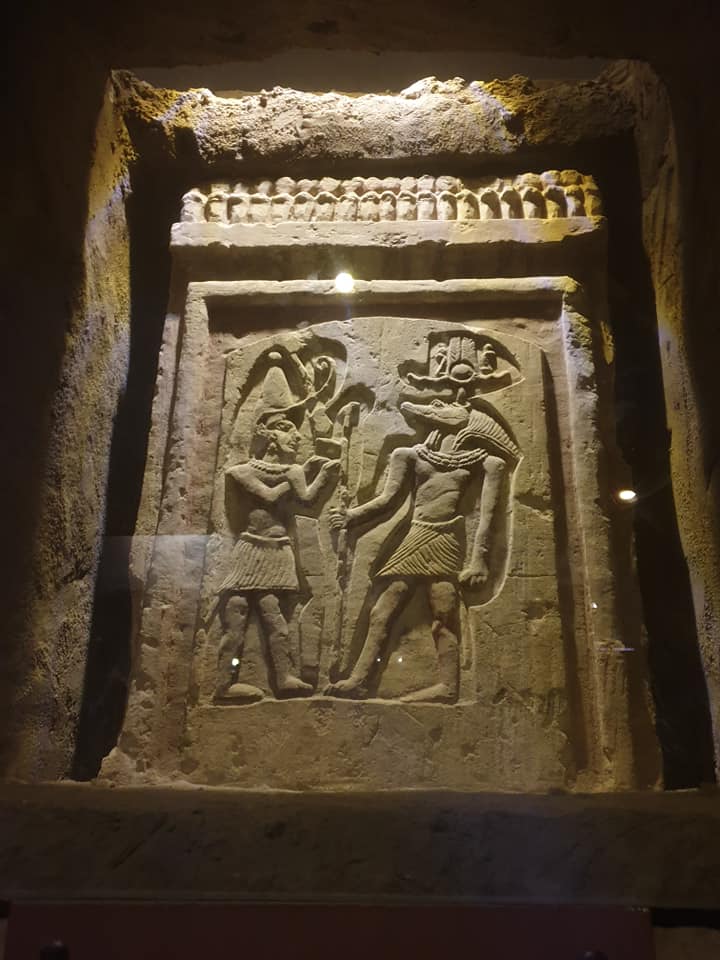
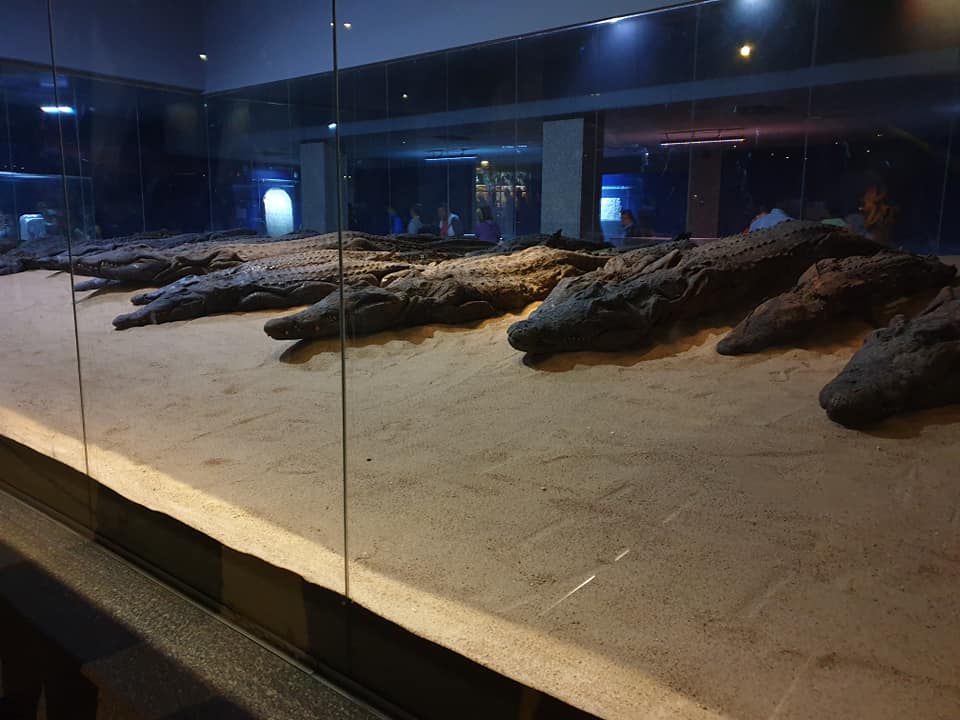
The evening ended with a party on the ship where we were entertained by a belly dancer; she even gave the group a lesson, which was fun. Than we got to see a whirling dervish type of dancer who held up his lit up skirt, all the while spinning (for a pretty long time too). It was pretty impressive.
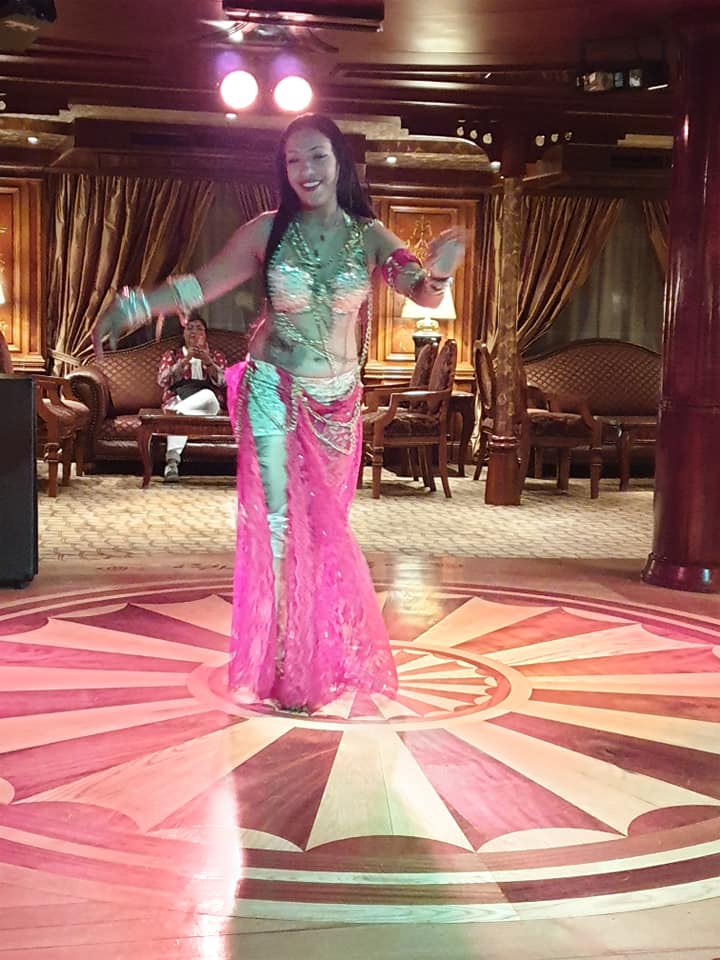
The next day was a free day where we could sleep in and relax; there were no planned activities. We still made ourselves get up for breakfast since we were enjoying the three included meals a day on the ship (and the food was really good). It was also my sister’s birthday. Kristina wanted to be in Egypt during her birthday since she hates being home during her annual solar rotation day. My sister was serenaded in Arabic, sung the longest Happy Birthday song ever, and a special birthday cake was brought over to her. She also enjoyed free drinks courtesy of her big sister. Our amazing guide Mike arranged all this. My sister said it was her favorite birthday ever, and a great way to end our time on the Nile cruise ship!
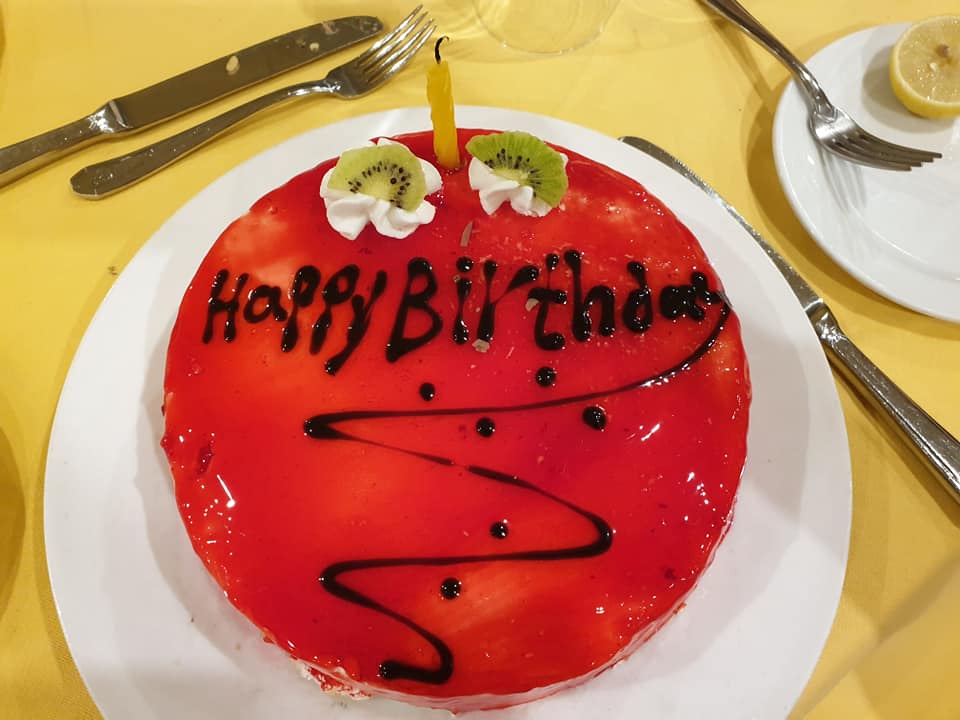
My next post will be about our time in Luxor since that is where the cruise ended, and we went to the Valley of the Kings; so stay tuned for more exciting adventures! Also, let me know if you have any suggestions. If you like my Facebook page, there are videos from the trip posted that you can check out as well. I also update the Instagram WayfaringGal page (which has more photos from the trip) with new posts. Thank you for reading, and comments and feedback are always welcome since that is how we learn and grow.
